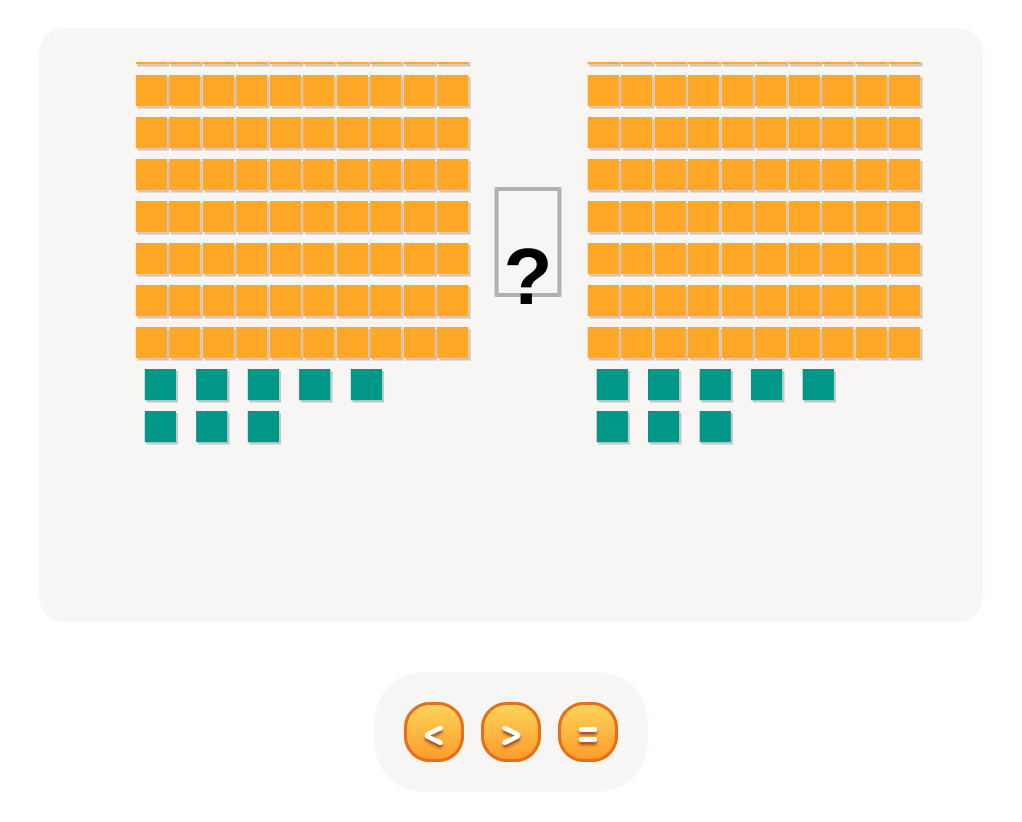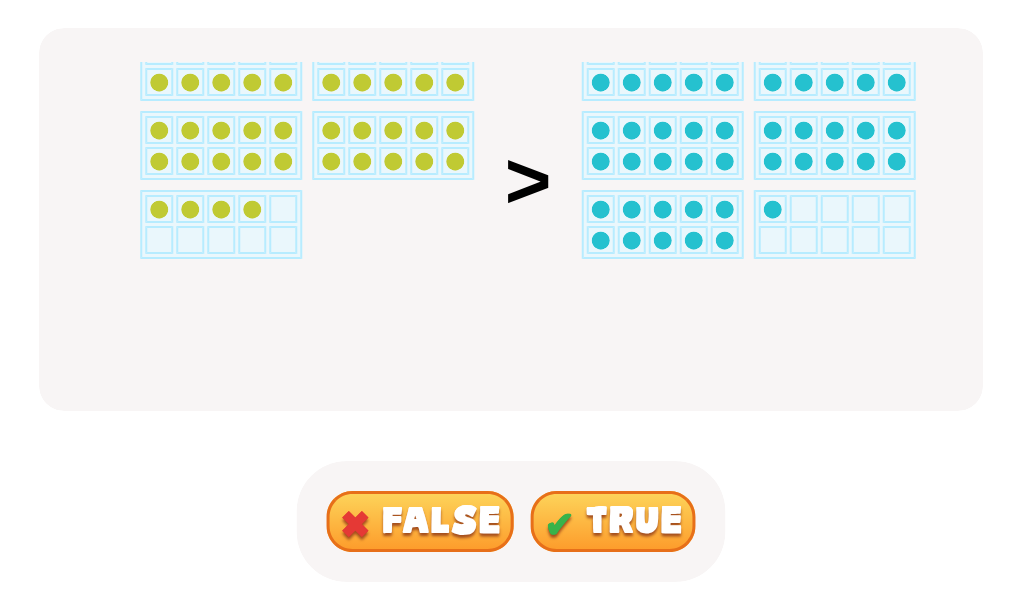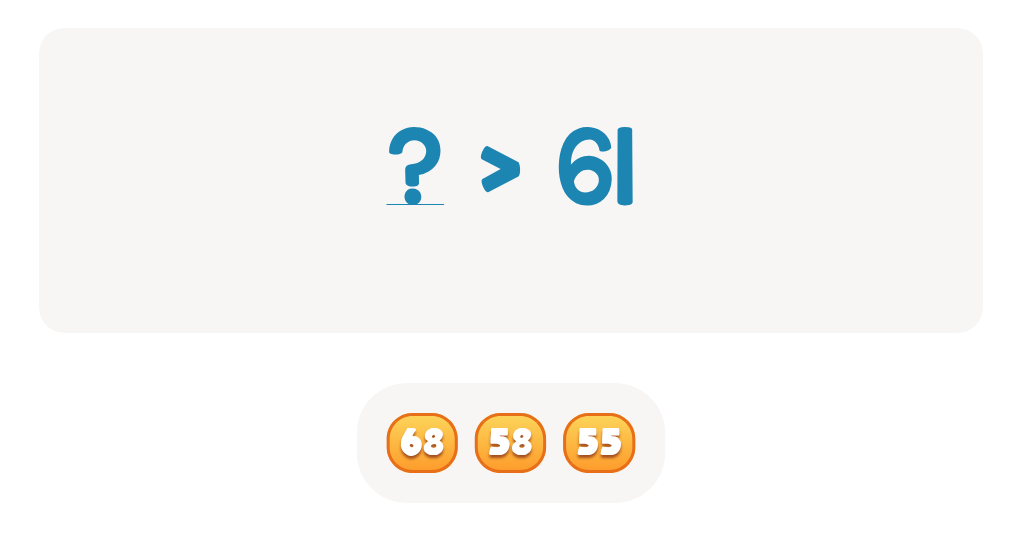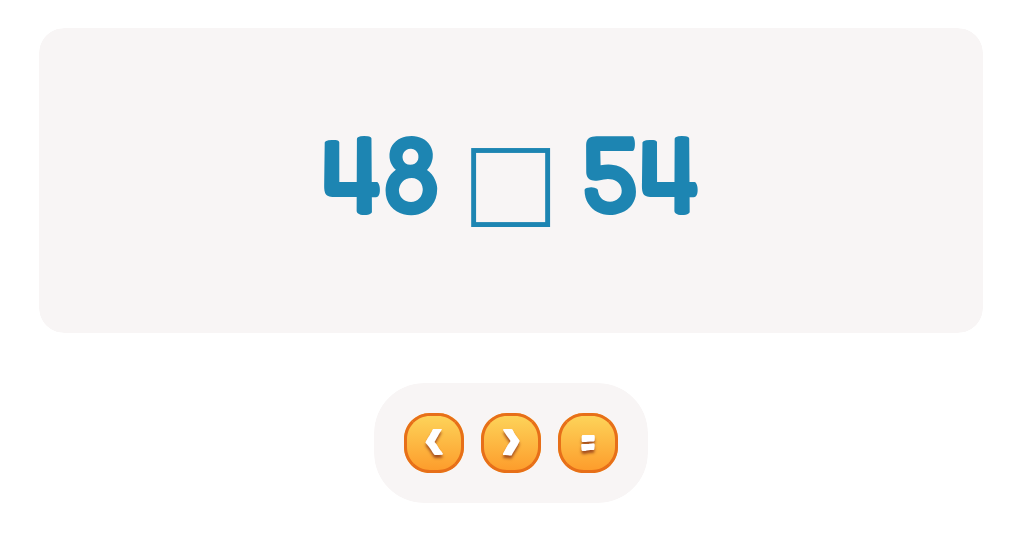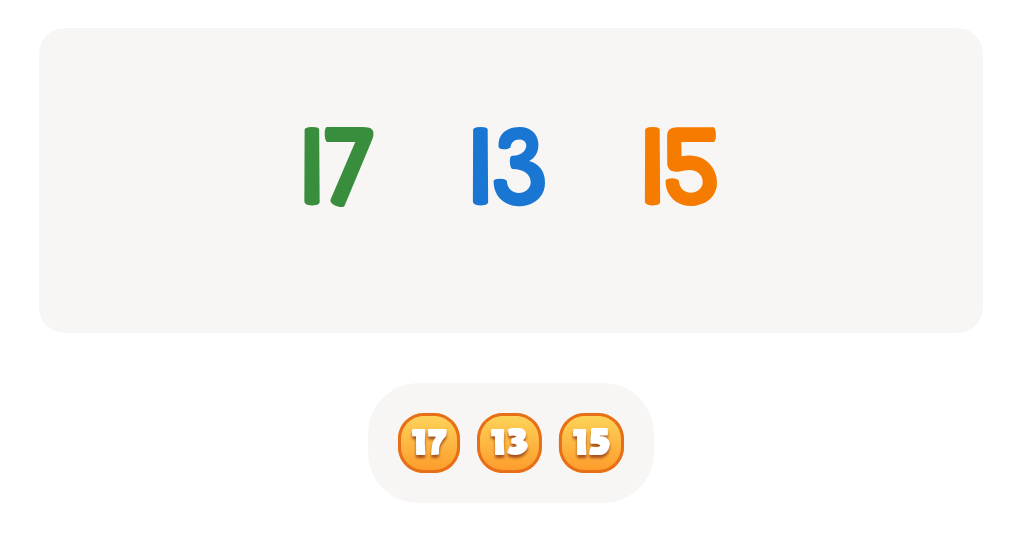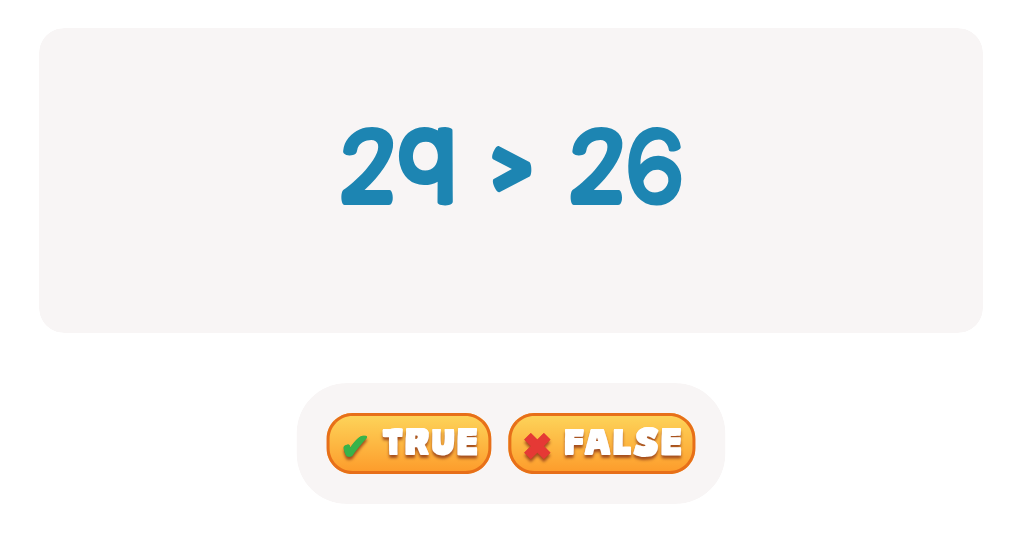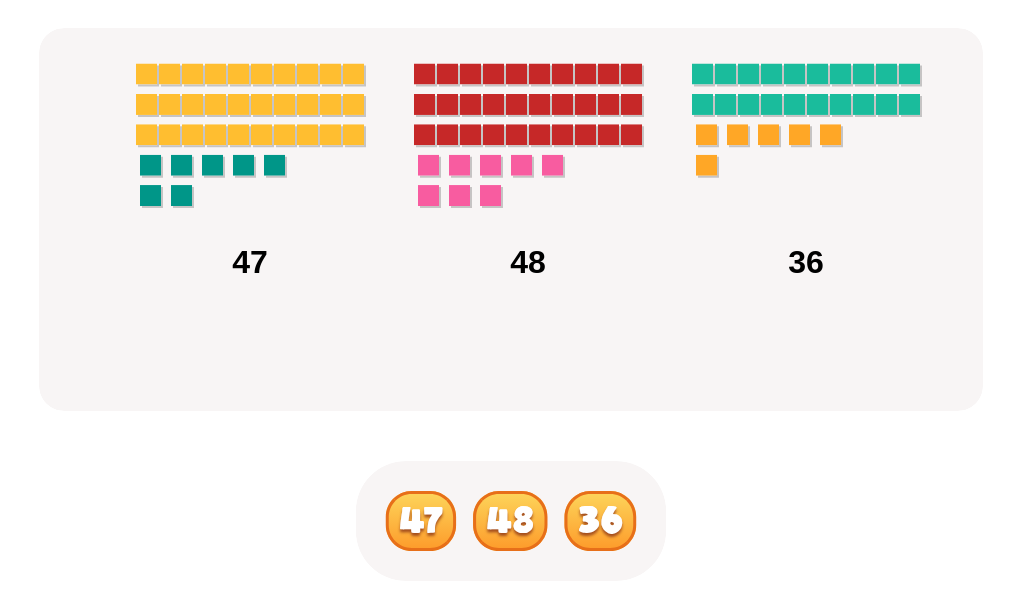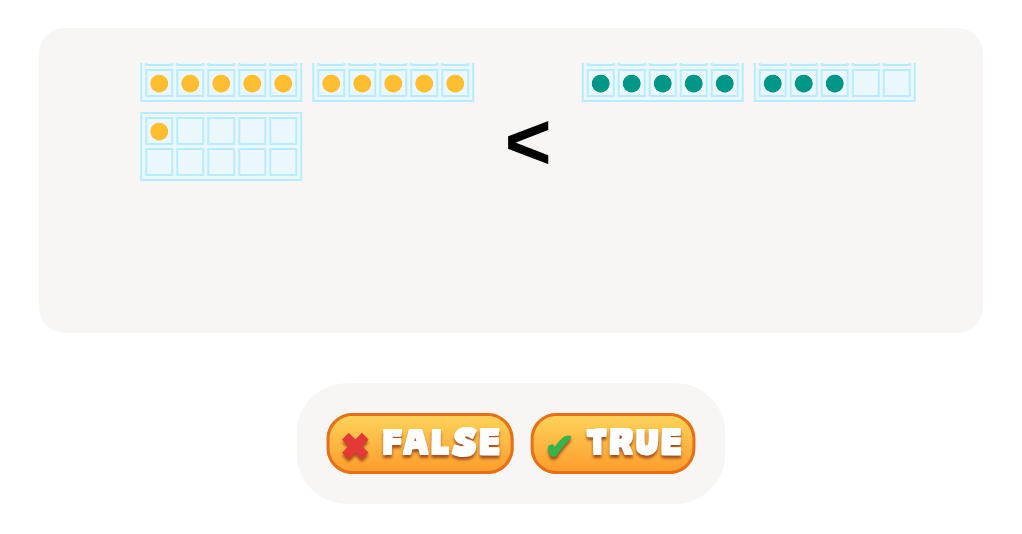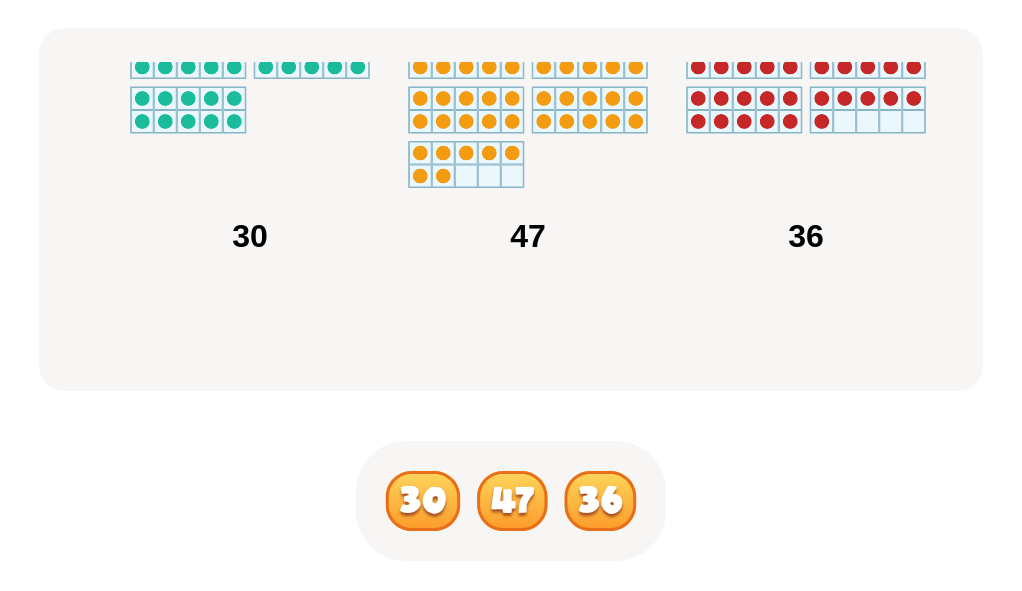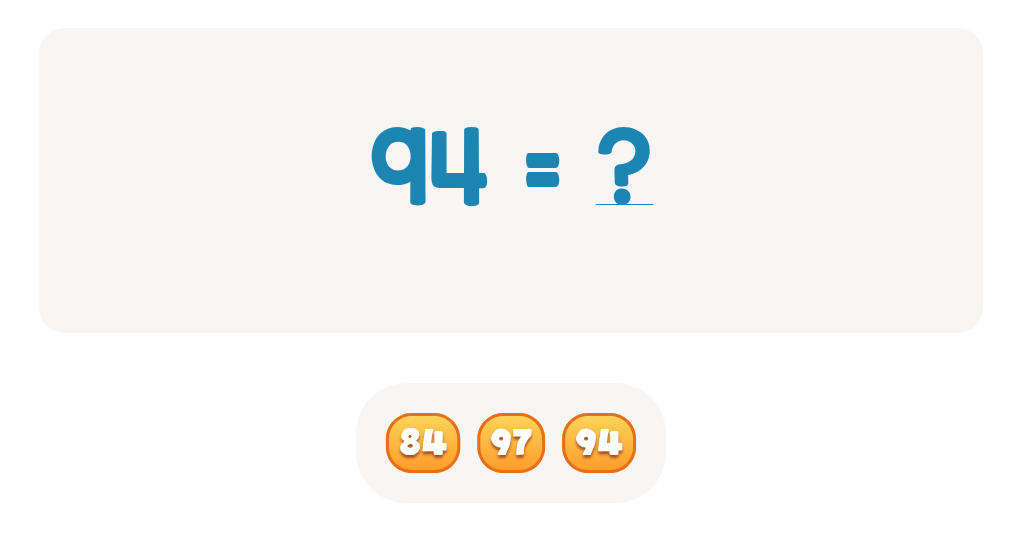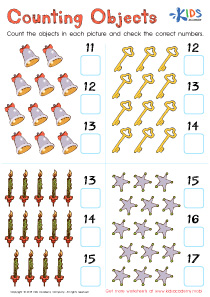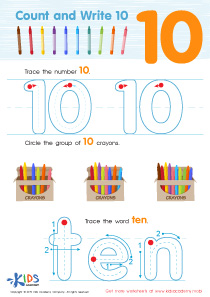Problem-Solving Skills Normal Comparing Numbers Worksheets for Ages 5-7
3 filtered results
-
From - To
Boost your child's problem-solving abilities with our engaging Normal Comparing Numbers Worksheets designed for kids aged 5-7! These worksheets help young learners compare and analyze simple quantities, fostering crucial math skills. Each activity encourages children to identify which number is greater or smaller, enhancing their understanding of basic math concepts while strengthening their critical thinking and decision-making abilities. Perfect for both classroom use and at-home practice, these worksheets are a fun and interactive way to develop foundational math skills essential for future learning. Explore our collection and watch your child’s confidence and competence in math blossom!
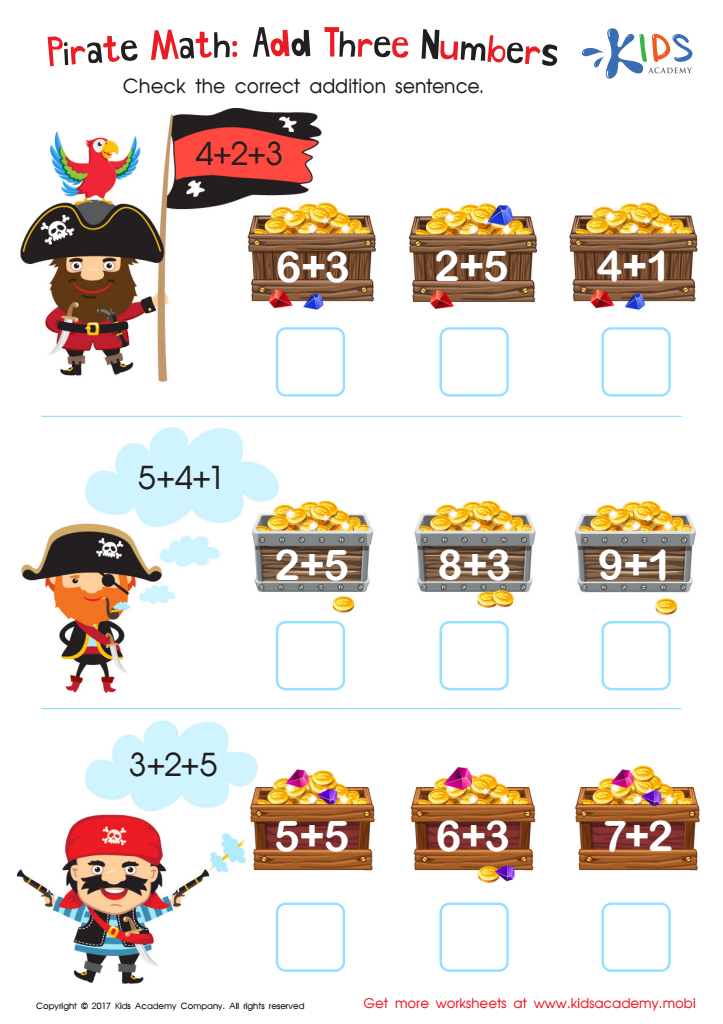

Pirate Math Printable
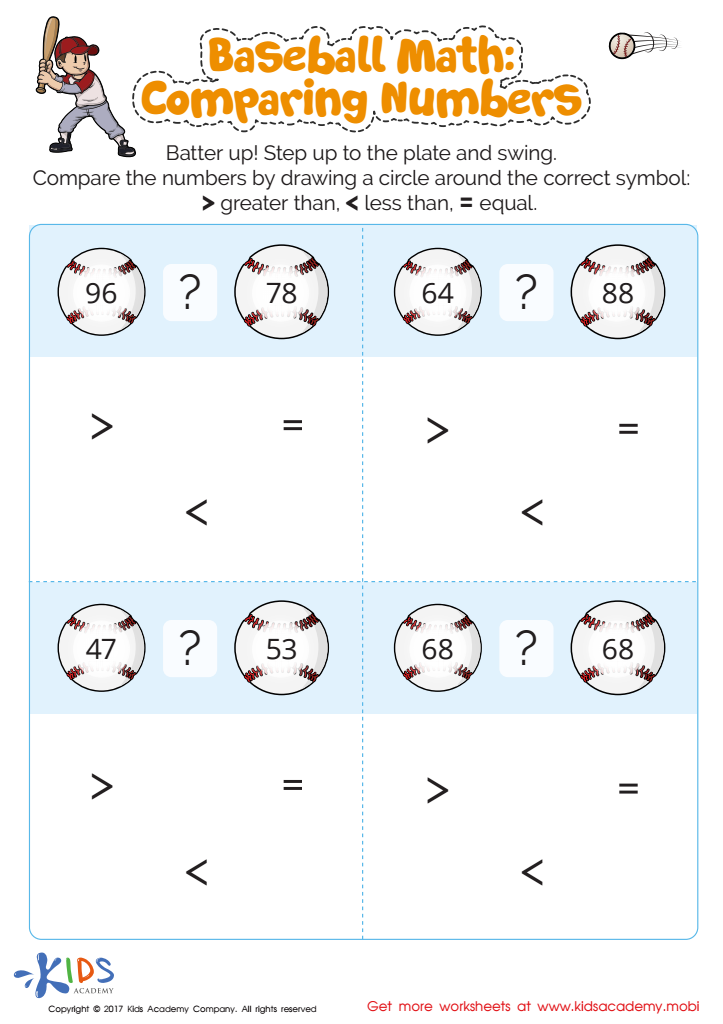

Compare Numbers Printable
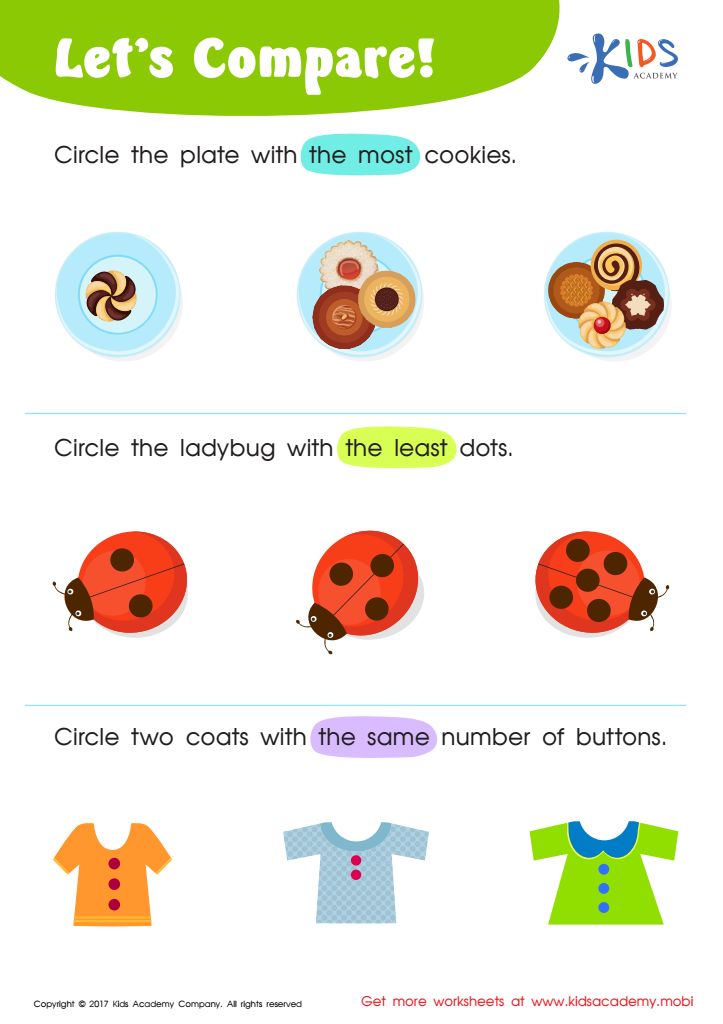

Matching: Classifying Toys by Size Worksheet
Problem-solving skills and the ability to compare numbers are crucial cognitive abilities for young children aged 5-7, forming the foundation for more complex mathematical and critical thinking tasks in the future. Parents and teachers should pay careful attention to nurturing these skills for several reasons.
Firstly, comparing numbers and basic problem-solving lay the groundwork for arithmetic proficiency. When children understand how to compare quantities, they begin grasping concepts of more, less, and equal, which are essential for addition, subtraction, multiplication, and division.
Secondly, these skills foster logical reasoning and critical thinking. Problem-solving encourages children to analyze situations, think creatively, and develop strategies to reach solutions. This kind of thinking extends beyond mathematics and is valuable in everyday decision-making and scientific reasoning.
Thirdly, engaging in these activities boosts confidence. Mastery of small, progressively challenging problems encourages children, making them more eager to tackle new challenges. It fosters a growth mindset, where effort and persistence are valued.
Lastly, early numerical comparisons and problem-solving promote academic success. Early mathematical proficiency correlates with better performance across other academic areas, including reading and science, advocating for a more holistic development.
In summary, emphasizing problem-solving and number comparison in early childhood equips children with essential skills for their academic journey and life beyond the classroom.
 Assign to My Students
Assign to My Students
